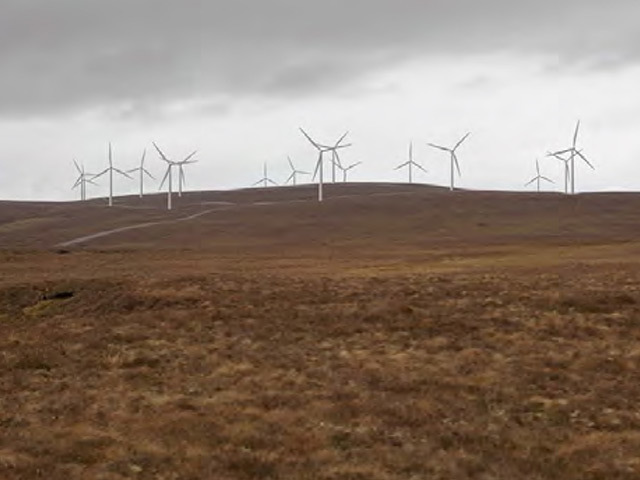
Anti-windfarm campaigners were celebrating last night after a power giant abandoned two controversial north projects.
SSE said the Dalnessie scheme and plans to extend an existing development at Fairburn were no longer financially viable.
Residents who had protested at the proposals hailed the decision as a victory for people power, as industry body Scottish Renewables admitted onshore windfarm developers across the country were facing tough times.
The 27-turbine Dalnessie scheme, north-east of Lairg, had been due to be the subject of a public inquiry in the summer after Highland Council, the John Muir Trust and the Mountaineering Council of Scotland all objected to it.
The inquiry will now be called off.
Plans for a 12-turbine extension to the existing Fairburn windfarm in Ross-shire have also been scrapped.
In a statement, SSE said: “Reviews of both proposals have concluded that continued investment in progressing them is no longer financially viable.”
The company declined to say if the cost of the inquiry or UK Government subsidy reduction for onshore wind had influenced the decision.
Colin Nicol, SSE’s director of onshore renewables, said: “Each project is dealt with on a case-by-case basis and the decision to end Dalnessie and Fairburn extension means that we can redirect resource on to the best projects in our portfolio, ensuring they more effectively deliver the best-value renewable energy for the consumer and SSE, consistent with our commitment to being a responsible developer.”
Anti-windfarm campaigner Lyndsey Ward, of Kiltarlity, said: “This is the best news we could have had.
“Both projects are highly-controversial developments. My own community is close to Fairburn extension and will be delighted that this ill-conceived proposal has been axed.
“Communities who don’t want industrial wind installations near them are beginning to fight back hard with professional advice and, I believe, it is making a difference.
“We are fed up with being disrespected and our opinions ignored. I hope part of the withdrawal was because SSE listened to the communities – but somehow I doubt it.”
Stuart Young, of Caithness Windfarm Information Forum, said he hoped that more windfarm developers would follow suit.
He said: “I’m just delighted about this, particularly as they are both pretty nasty developments. A lot of people would be affected by both Dalnessie and Fairburn. I hope this is just the start of many.”
John Muir Trust head of policy, Helen McDade, said of the Dalnessie withdrawal: “This is a major U-turn by SSE and a victory for those who want to see Scotland’s wild land protected against large-scale, industrial-style development.
“This windfarm would have involved the erection of dozens of turbines and the excavation of thousands of tonnes of rock and the construction of tens of miles of access roads on a spectacular wild landscape.
“SSE was well aware that it faced formidable opposition from a broad coalition of local residents and businesses, conservationists and outdoors organisations.
“Whatever the official reason given for this decision, we would like to think the company will now think more strategically about where they site onshore windfarms.”
Mountaineering Council of Scotland chief officer, David Gibson, also welcomed the decision and said: “We hope that other developers will question the wisdom of pursuing such developments which threaten the wide and open landscapes of this beautiful area of Scotland.”
Recommended for you
